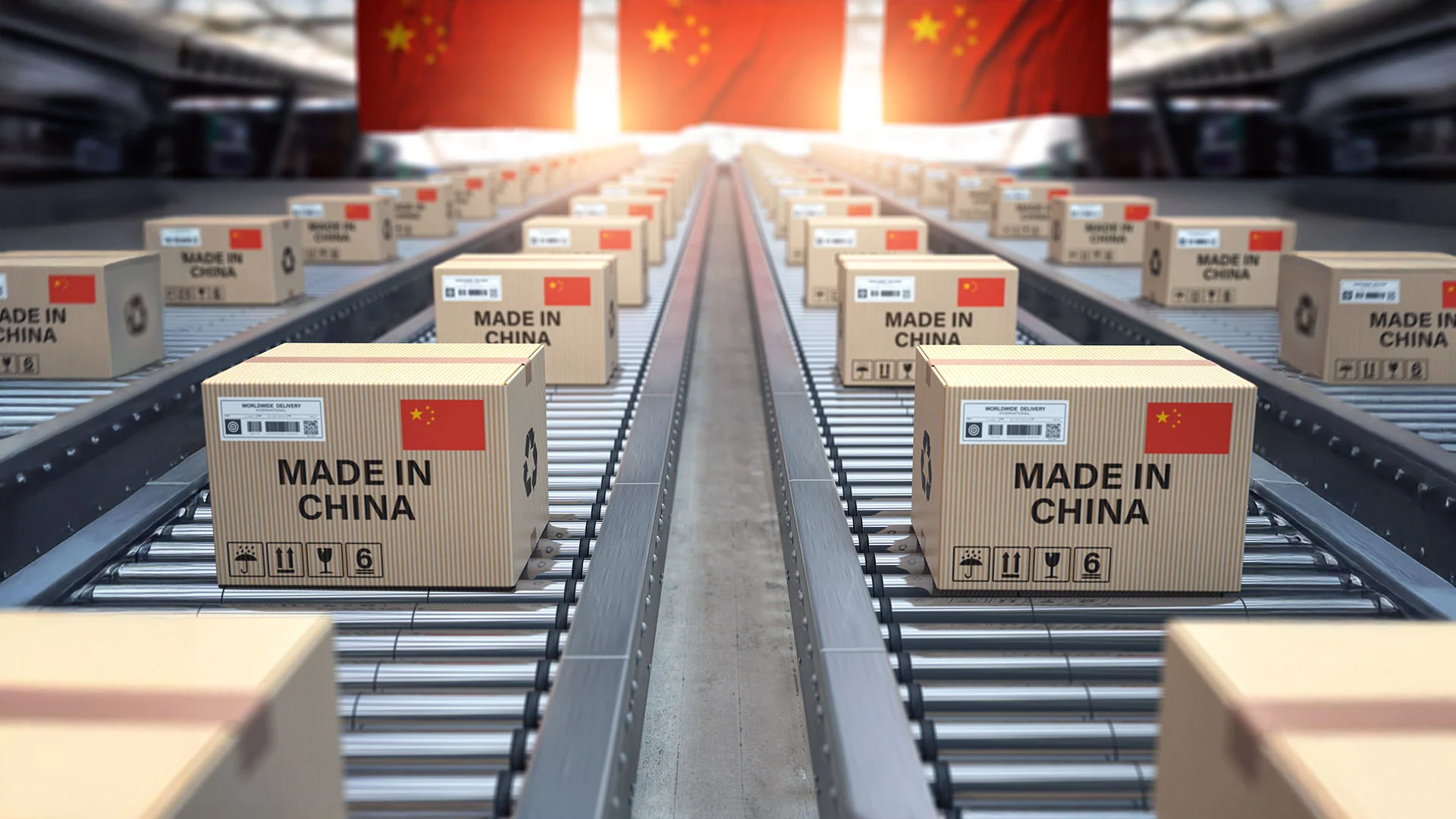We take a “quality income” approach to investing in Asia Pacific (ex Japan), focusing on liquid companies with strong balance sheets, good governance, solid barriers to entry, and an ability to pay – and grow – dividends. As part of our investment process, we also take into account top-down factors like a country’s political and macroeconomic backdrop, as well as demographics, trade relationships and sector trends.
We avoid chasing short-term “wins”, instead looking for businesses that we believe have the strongest prospects over the longer term. We only invest where we have the highest conviction, though an active, unconstrained approach gives us the freedom to divest if our views change due to new information.
A huge technological transformation
We believe that the Asia Pacific (ex Japan) region is home to several world-leading businesses in the technology sector, and as such, we have always held tech exposure in our Asian Equity Income strategy. However, in light of recent technological advancements – namely those related to artificial intelligence (AI) – our conviction in these positions has only grown stronger. We believe that these trends are likely to play out over the longer term, with several companies set to benefit over the coming years.
We last saw a peak in the tech replacement cycle in 2020, when lockdowns were enforced globally following the outbreak of the Covid-19 pandemic, resulting in a huge ramp-up in technology spending. These new purchases were being made because of the situation forced upon consumers, rather than because of significant advancements that had been made in the sophistication of the technology itself.
Now, four years on from the start of Covid-19 global lockdowns, we’re approaching the point in time when we would usually expect to see another round of tech replacement, regardless of technological developments. However, given huge advancements in AI, we believe this replacement cycle will be the biggest ever and will last longer than normal. We expect new tech investments to be rolled out at an accelerated pace; over the next several years, we predict that many people globally will realise that their current tech assets have become pretty much obsolete.
Asia is leading the way
We believe that several tech hardware companies in the Asia Pacific (ex Japan) region are primed to benefit strongly from the global rollout of AI. In our view, Taiwan and South Korea, in particular, are home to some of the best-in-class tech companies in the world. We believe it is possible to identify several tech companies based in the region that are trading on attractive valuations, not only on an absolute basis, but also on a relative basis when compared to many US large-cap tech stocks.
In total, we have exposure to five tech companies, four hardware companies and one services company, all of which we view as enablers of AI. Given our strengthening conviction, since the start of January, we have decided to increase the Asian Equity Income strategy’s weighting in the tech sector, so it is now our strategy’s largest sector allocation.
We believe that each of the tech companies we hold are either the best, or among the best, at what they do; as such, each is a top 10 position in the strategy. We think that these businesses complement each other well, rather than fighting over market share, so that each deserves its place in our portfolio. All of these companies have a net cash balance sheet and they offer attractive dividend yields.
Taiwan Semiconductor Manufacturing Company (TSMC): TSMC is the world’s largest semiconductor manufacturer, with a near monopoly in leading-edge semiconductors. It manufactures 100% of Nvidia’s high-end GPUs. TSMC expects its revenue to grow 20% to 25% year-on-year in 2024.
MediaTek: MediaTek is a fabless semiconductor company which designs chips that power more than 2 billion devices a year, including smartphones, making the company the number one provider of smartphone chips globally. MediaTek recently posted better-than-expected Q4 2023 results.
Samsung Electronics: Samsung is the world’s largest memory manufacturer and is also a leading producer of smartphones, TVs and PCs. Samsung has already launched an AI feature phone, the Galaxy S24, ahead of its peers.
Hon Hai Precision: Hon Hai (Foxconn) is the world’s largest electronics manufacturer, producing everything from smartphones (it assembles roughly two thirds of all iPhones) to AI data centres.
HCL Technologies: IT services is arguably India’s most successful export sector. HCL Tech is the third largest Indian IT services company, and it has recently been outperforming its larger peers. HCL Tech is already helping its clients across the globe to utilise AI in their businesses.
These holding examples are for illustrative purposes only and are not a recommendation to buy or sell.
Winners and losers
We believe that Asia is home to several best-in-class tech hardware companies, which should be set to benefit from the forthcoming tech replacement cycle. While some of these companies suffered earnings declines last year, we expect to see a rebound in earnings this year; meanwhile, we think those companies that already delivered strong earnings last year are likely to see continued growth momentum as the need to embrace AI is recognised.
While we are confident about the longer-term outlook for the positions we hold in the strategy, at the same time, we are cognisant of the risks that many companies and sectors could face over the coming years as their current tech becomes obsolete. Our active approach will allow us to adjust our allocations if we believe any of our investee companies are struggling to adapt effectively.
The value of active minds: independent thinking
A key feature of Jupiter’s investment approach is that we eschew the adoption of a house view, instead preferring to allow our specialist fund managers to formulate their own opinions on their asset class. As a result, it should be noted that any views expressed – including on matters relating to environmental, social and governance considerations – are those of the author(s), and may differ from views held by other Jupiter investment professionals.
Important information
This document is intended for investment professionals* and is not for the use or benefit of other persons, including retail investors, except in Hong Kong. This document is for informational purposes only and is not investment advice. Market and exchange rate movements can cause the value of an investment to fall as well as rise, and you may get back less than originally invested. The views expressed are those of the individuals mentioned at the time of writing, are not necessarily those of Jupiter as a whole, and may be subject to change. This is particularly true during periods of rapidly changing market circumstances. Every effort is made to ensure the accuracy of the information, but no assurance or warranties are given. Holding examples are for illustrative purposes only and are not a recommendation to buy or sell. Issued in the UK by Jupiter Asset Management Limited (JAM), registered address: The Zig Zag Building, 70 Victoria Street, London, SW1E 6SQ is authorised and regulated by the Financial Conduct Authority. Issued in the EU by Jupiter Asset Management International S.A. (JAMI), registered address: 5, Rue Heienhaff, Senningerberg L-1736, Luxembourg which is authorised and regulated by the Commission de Surveillance du Secteur Financier. For investors in Hong Kong: Issued by Jupiter Asset Management (Hong Kong) Limited (JAM HK) and has not been reviewed by the Securities and Futures Commission. No part of this document may be reproduced in any manner without the prior permission of JAM/JAMI/JAM HK.
*In Hong Kong, investment professionals refer to Professional Investors as defined under the Securities and Futures Ordinance (Cap. 571 of the Laws of Hong Kong) and in Singapore, Institutional Investors as defined under Section 304 of the Securities and Futures Act, Chapter 289 of Singapore.
For professional investors in US Offshore only: The Jupiter Asia Pacific Income Fund (IRL) has not been registered under the United States Investment Company Act of 1940, as amended, nor the United States Securities Act of 1933, as amended. None of the shares may be offered or sold, directly or indirectly in the United States or to any US Person, unless the securities are registered under the Act, or an exemption from the registration requirements of the Act is available. A US Person is defined as (a) any individual who is a citizen or resident of the United States for federal income tax purposes; (b) a corporation, partnership or other entity created or organized under the laws of or existing in the United States; (c) an estate or trust the income of which is subject to United States federal income tax regardless of whether such income is effectively connected with a United States trade or business.
For professional investors in LATAM only: Legal Notice for Residents in the Republic of Argentina: This document includes a private invitation to invest in securities. It is addressed only to you on an individual, exclusive, and confidential basis, and its unauthorised copying, disclosure, or transfer by any means whatsoever is absolutely and strictly forbidden. Jupiter Asset Management will not provide copies of this prospectus, or provide any kind of advice or clarification, or accept any offer or commitment to purchase the securities herein referred to from persons other than the intended recipient. The offer herein contained is not a public offering, and as such it is not and will not be registered with, or authorised by, the applicable enforcement authority. The information contained herein has been compiled by Jupiter Asset Management, who assumes the sole responsibility for the accuracy of the data herein disclosed.
Legal Notice for Residents in Brazil: The Fund may not be offered or sold to the public in Brazil. Accordingly, the Fund has not been and will not be registered with the Brazilian Securities and Exchange Commission (Comissão de Valores Mobiliários, the “CVM”), nor has been submitted to the foregoing agency for approval. Documents relating to the Funds, as well as the information contained therein, may not be supplied to the public in Brazil, as the offering is not a public offering of funds in Brazil, nor used in connection with any offer for subscription or sale of funds to the public in Brazil.
Aviso Legal para Residentes en Chile: Esta oferta privada se inicia el día según lo establecido en el título y se acoge a las disposiciones de la norma de carácter general nº 336 de la Superintendencia de Valores y Seguros. Esta oferta versa sobre valores no inscritos en el registro de valores o en el registro de valores extranjeros que lleva la Superintendencia de Valores y Seguros, por lo que tales valores no están sujetos a la fiscalización de ésta. Por tratar de valores no inscritos no existe la obligación por parte del emisor de entregar en Chile información pública respecto de los valores sobre los que versa esta oferta. Estos valores no podrán ser objeto de oferta pública mientras no sean inscritos en el Registro de Valores correspondiente.
This private offer commences on the date as stated in the title and it avails itself of the General Regulation No. 336 of the Superintendence of Securities and Insurance. This offer relates to securities not registered with the Securities Registry or the Registry of Foreign Securities of the Superintendence of Securities and Insurance, and therefore such shares are not subject to oversight by the latter. Being unregistered securities, there is no obligation on the issuer to provide public information in Chile regarding such securities. These securities may not be subject to a public offer until they are registered in the corresponding Securities Registry.
Legal Notice for Residents of Mexico: The securities have not been and will not be registered with the National Registry of Securities, maintained by the Mexican National Banking and Securities Commission and, as a result, may not be offered or sold publicly in Mexico. The fund and any underwriter or purchaser may offer and sell the securities in Mexico on a private placement basis to Institutional and Accredited Investors pursuant to Article 8 of the Mexican Securities Market Law.
Legal Notice for Residents of Paraguay: The Shares have not been registered with the Comisión Nacional de Valores of Paraguay (CNV), neither with the Stock Exchange of Asuncion (BVPASA) and are being placed by means of a private offer. CNV nor BVPASA has not reviewed the information provided to the investor. This document is only for the exclusive use of specific investor in Paraguay and is not for public distribution.
Legal Notice for Residents of Peru: The funds have not been registered before the Superintendencia del Mercado de Valores (SMV) and are being placed by means of a private offer. SMV has not reviewed the information provided to the investor. This document is only for the exclusive use of institutional investors in Peru and is not for public distribution.
Legal Notice for Residents of Uruguay: The sale of the securities qualifies as a private placement pursuant to section 2 of Uruguayan law 18,627. The securities must not be offered or sold to the public in Uruguay, except in circumstances which do not constitute a public offering or distribution under Uruguayan laws and regulations. The securities are not and will not be registered with the Financial Services Superintendency of the Central Bank of Uruguay. The securities correspond to investment funds that are not investment funds regulated by Uruguayan law 16,774 dated September 27, 1996, as amended.





